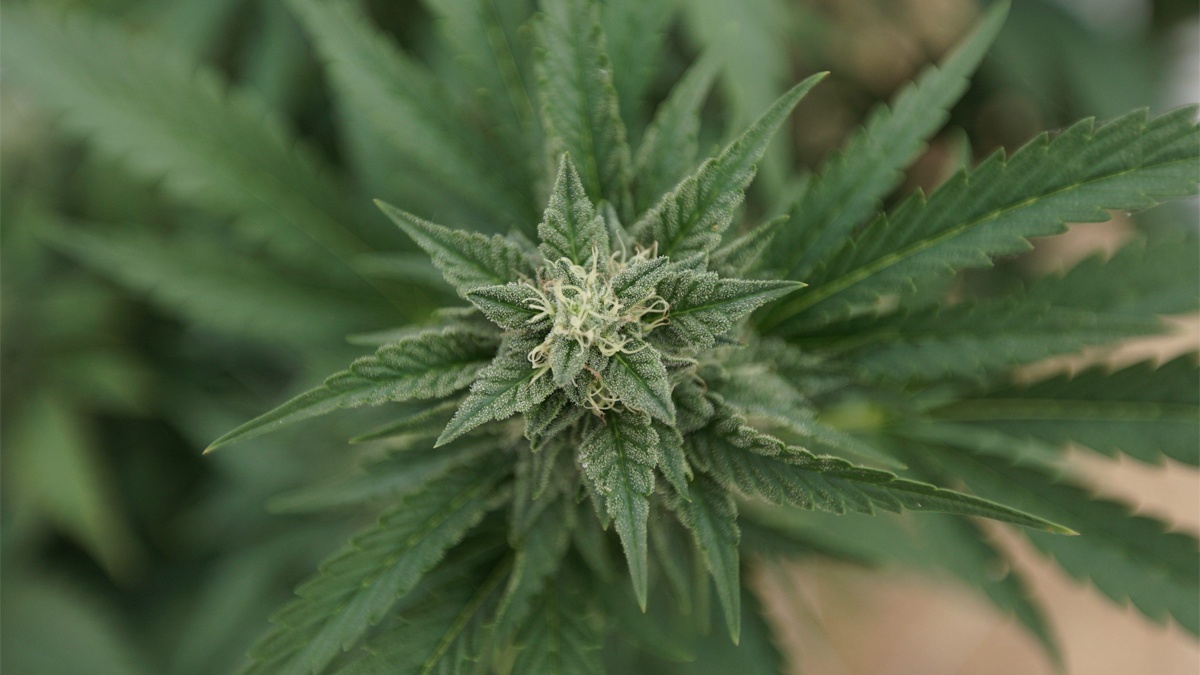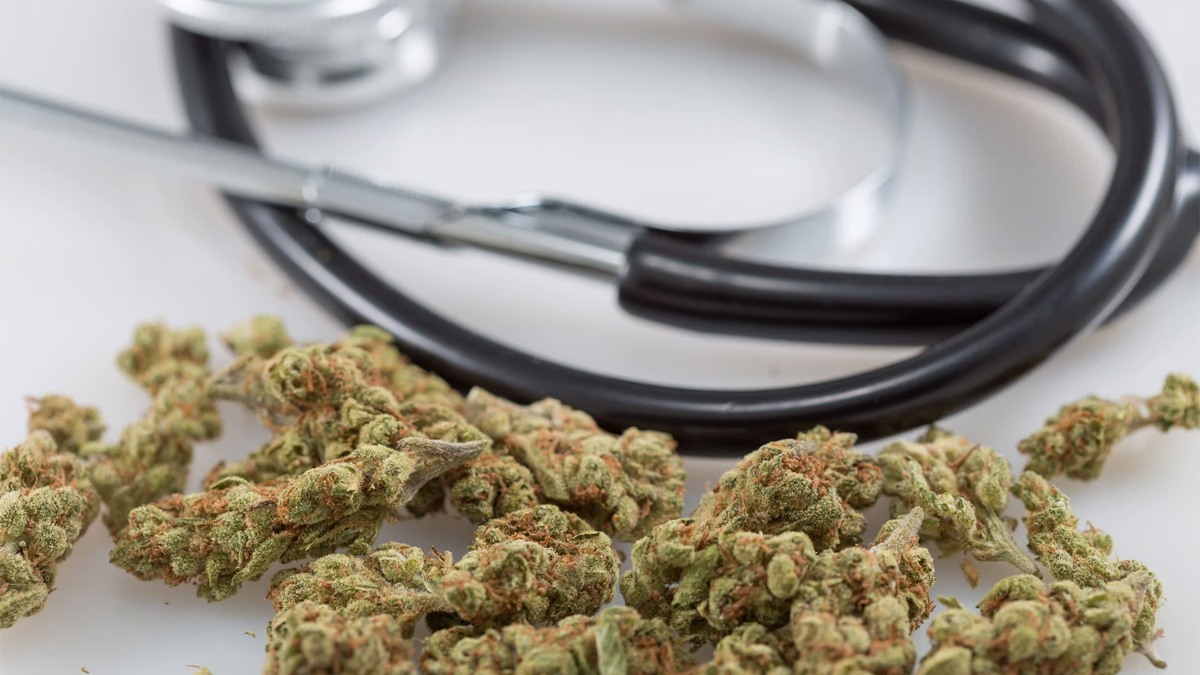
Photo courtesy of Chris Wallis // Side Pocket Images.
Newly published research that combines an academic literature review with a survey of university students concludes that marijuana is likely an effective tool in reducing harm caused by opioid use disorder, while noting that “perceptions and knowledge vary.”
“Upon a review of the literature, it is reasonable to conclude that cannabis has some efficacy in the setting of opiate maintenance, as well as other therapeutic uses,” says the new paper. In light of public concerns over opioid overdoses and the possibility of marijuana being rescheduled, it adds, “there is a distinct possibility that cannabis use in harm reduction models will increase.”
The review first looks to available evidence on the use of marijuana as a substitute for opioids and other drugs, noting that at least some studies have indicated that cannabinoids can help reduce opioid-related cravings and withdrawal symptoms. It also points to self-reported data suggesting some people already are reducing opioid use in favor of cannabis.
“Current research suggests that cannabis has a great deal of potential for opiate related harm reduction and substitute therapies,” the study, which is an Augsburg University master’s thesis by author Clark Furlong, says. “Cannabis has been shown to improve opioid analgesic effects while reducing patient tolerance and dependance. There is well documented research on the efficacy of cannabis for the substitution of illicit drugs (opiates) and pharmaceuticals (opioids). In animal models’ cannabinoids have been shown to reduce the effects of opiate withdrawal (and anecdotally in humans).”
“As such,” it continues, “cannabis could have the potential to decrease adverse outcomes and reduce drug seeking behavior in patients battling with opiate addiction.”
“There is a strong body of evidence that supports the theory that cannabis may be efficacious in opiate related harm reduction settings.”
The paper acknowledges that marijuana use carries its own risks but also notes that those risks are complicated and often patient-specific. For example, it says, some people may use cannabis to manage depression, while “cannabis use may precede depression in others.”
“Therefore, we need to learn about the drug and its nuances,” Furlong continues, noting that “clearly more research is needed” to understand how the substance can be “beneficial” to some but “incredibly detrimental” to others.
On balance, however, the paper notes that risks associated with cannabis are far less severe than those around opioids.
“Cannabis may have some harms associated with it, however, there appear to be far less than with opiate use,” it says. “It is therefore possible that cannabis can improve lives and provide better outcomes when compared to the current model of opiate substitution/maintenance therapy.”
Despite years of record opioid-related deaths, “treatment has not changed,” the study asserts, “nor has there been much effort into pharmacological advancement with opiate addiction interventions. Even opiate addicts undergoing treatment face a mortality rate that is 12 times greater than that of the average public.”
Meanwhile methadone, a drug used in some medication-assisted treatment for opioid use disorder, often has side-effects such as “sleep difficulties, problems with sexual performance, and cardiovascular incidents,” it says.
The paper contends that many people should be “detoxified and tapered off the drug, which is how it was designed to be used in maintenance programs,” but that researchers and policymakers “overlook adverse events and side effects” from long-term methadone use due to subjects’ “reported improvements in quality of life.”
Results of the survey portion of the new paper generally show support for the notion that cannabis could be a promising tool for managing opioid use disorder.
More than 70 percent of respondents said they believe there are more harms associated with opiate use than marijuana, and similar portions said cannabis can be used to manage pain as well as to manage withdrawal symptoms of opiates.
About 65 percent, meanwhile, said they’d known someone in the past year who used marijuana “for an ‘off-label’ medical purpose.”
Notably, about two thirds of respondents answered that they believe cannabis has a positive effect on mental health—but two thirds also said they believe cannabis has a negative effect on mental health.
Overall, 8 in 10 survey respondents also said they believe cannabis should be legalized.
“Trends in the literature suggest cannabis has a better side effect profile and less severe long-term health effects than opiates,” the study says. “Most participants felt as if more harms were associated with opiates, this was an impetus of this study and the survey results reflect the conclusions of the literature.”
“Cannabis has been shown to reduce pain and there is growing evidence of a symbiotic relationship between cannabis receptors and opiate receptors,” it continues. “The student population seems to be educated about cannabis’s use in a pain setting, this reflects the literature as it has many applications in cancer settings, chronic pain and even palliative care.”
For now, Furlong acknowledges, studies around cannabis and opioids are “small and often performed with many limitations,” but says “researchers believe that there will be an explosion of data in the coming years with the changing public perception of cannabis and the potential rescheduling of cannabis on the federal level.”
“Nonetheless the proven efficacy of cannabis in pain management and cancer, coupled with its other uses/benefits and rather safe side effect profile make it an excellent candidate for further exploration in substitute addiction research,” the paper says.
The study comes just a few months after a separate, federally funded study found that marijuana helps people with substance misuse disorders stay off opioids or reduce their use, maintain treatment and manage withdrawal symptoms.
Researchers at the University of Southern California set out to investigate the relationship between cannabis consumption and injecting opioids, recruiting 30 people in Los Angeles at a community site near a syringe exchange service program and methadone clinic to analyze the relationship.
“Participants reported using cannabis substitution or co-use to manage the pain from withdrawal symptoms such as body aches and generalized discomfort which led to decreased opioid injection frequency,” those researchers found.
The study, published by the journal Drug and Alcohol Dependence Reports, was partially funded by the National Institute on Drug Abuse (NIDA) and supports a sizable body of scientific literature indicating that access to marijuana can offset the harms of the opioid epidemic, either by helping people limit use or giving them an offramp altogether.
Another recent study out of Ohio found that a large majority of medical marijuana patients in the state say cannabis has reduced their use of prescription opioid painkillers as well as other, illicit drugs.
A separate report published recently in the journal BMJ Open compared medical marijuana and opioids for chronic non-cancer pain and found that cannabis “may be similarly effective and result in fewer discontinuations than opioids,” potentially offering comparable relief with a lower likelihood of adverse effects.
And federally funded study published in May concluded that even some cannabis terpenes may have pain-relieving effects. That research found that an injected dose of the compounds produced a “roughly equal” reduction in pain markers in mice when compared to a smaller dose of morphine. Terpenes also appeared to enhance the efficacy of morphine in mice when the two drugs were given in combination.
Another study, published late last year, found that marijuana and opioids were “equally efficacious” at mitigating pain intensity, but cannabis also provided more “holistic” relief, such as by improving sleep, focus and emotional wellbeing.
The same month, research published in the Journal of Dental Research found that pure CBD could alleviate acute dental pain about as well as an opioid formula commonly used in dentistry.
A study published last summer linked medical marijuana use to lower pain levels and reduced dependence on opioids and other prescription medications. Another, published by the American Medical Association (AMA) in February, found that chronic pain patients who received medical marijuana for longer than a month saw significant reductions in prescribed opioids.
About one in three chronic pain patients reported using cannabis as a treatment option, according to another AMA-published report last year. Most of that group said they used cannabis as a substitute for other pain medications, including opioids.
Other research published last year found that letting people buy CBD legally significantly reduced opioid prescription rates, leading to 6.6 percent to 8.1 percent fewer opioid prescriptions.
A 2022 research paper that analyzed Medicaid data on prescription drugs, meanwhile, found that legalizing marijuana for adult use was associated with “significant reductions” in the use of prescription drugs for the treatment of multiple conditions.
Keep out of reach of children. For use only by adults 21 years of age and older.










